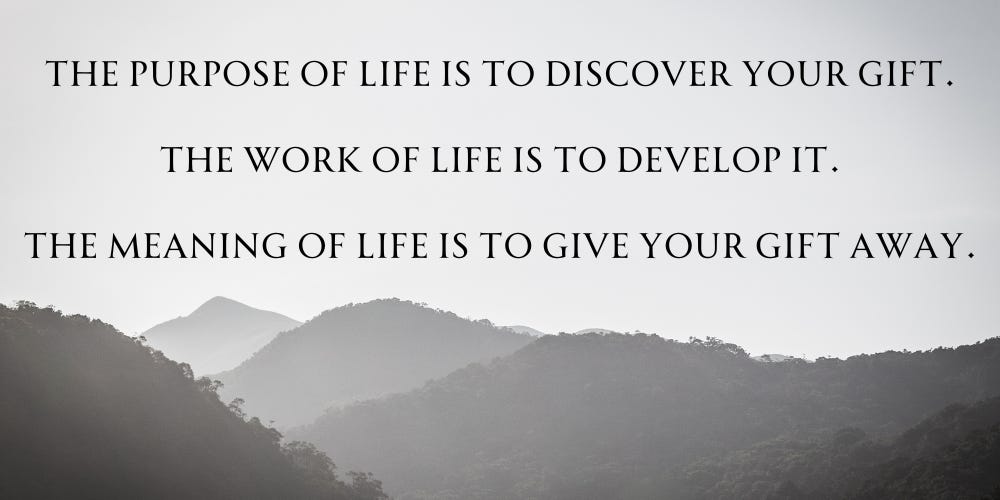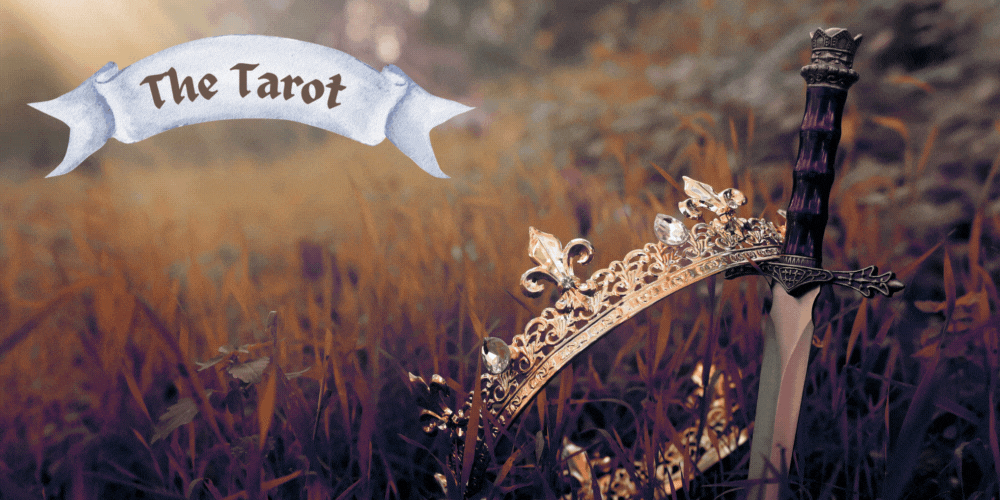Welcome everybody! After last week’s deep look at wounds and witnessing (Archetype and The Tarot: The Witness and Three of Swords and Relating with Spirits is a Two-Way Street), I thought it would be nice to keep things light and breezy this week. What follows is a little how-to article on the tarot, which might not be everyone’s cup of tea. We’ll get back to all things magic and spirits and ancestor-y next week. In the meantime, if you want to know more about Witchcraft & Metaphysics, check out this page here. AND below is the September downloadable again in case you missed it. (If you have trouble downloading it, let me know and I’ll get you sorted.)
I view the tarot as one of the many languages the Divine uses to speak to us. This deck of 78 cards is filled with symbols and patterns, messages of meaning that are interdependent with their context. It’s a truly beautiful language and one in which I may never become fluent. Every time I look at a card, new secrets are revealed to me. For many years, I struggled with the court cards in particular. I felt like I couldn’t quite get a handle on what they were saying to me.
I read a bunch of articles (much like this one I’m writing now) about the court cards, but none of them stuck. I think part of the issue for me was that I’m a condenser by nature. I like to take a concept and condense it down into a phrase or just a couple keywords. Three of swords? Loss. Two of pentacles? Trying to balance too many things. Four of cups? Indifference. (Of course, I’m WAY oversimplifying to illustrate a point here).
I found the court cards to be really hard to condense. They were nebulous and ephemeral. Be still, King of Wands, I need to pin you down.
Then, one day, I read a totally unrelated quote and those courtly characters finally fell into place–plink, plink, plink, plink!
Maybe, like me, you will need to float around until you find the specific language for the court cards that resonates with you. In case my take is helpful, though, here it is in all its glory!
Quick tip before we have any further discussion: RELEASE ANY NOTIONS OF GENDER AROUND THE COURT CARDS. I think part of what makes the court cards so challenging is their outdated gender binary-ness (at least in Rider Waite/Coleman Smith decks). In reality, they have nothing to do with gender. Queens are not women by default. Kings are not men. Knights are not masculine. Pages are not feminine. Just do away with all of that and you’ll be better off, I promise. Think of them all as non-gender-specific characters of the court.
Here is that unrelated, but super powerful, quote that helped me understand that court cards:

The tarot court consists of four characters (in each suit): page, knight, queen, and king. (Some decks have variations of these four, but let’s keep things simple for now.) We’ll unpack this more as we go, but the nutshell version, based on the above quote, is this…
Pages discover the gift of their suit.
Knights develop it.
Queens and Kings give it away, each in their own way.
Don’t worry about the suits yet, for now we’re just focusing on the court characters themselves.
Let’s start with the Pages
Pages are learning all about the gift of their suit (but they don’t leave the castle grounds). They are filled with curiosity and wonder about the suit. They read books about it from the castle library. They interact with the suit on the castle grounds. They are so dedicated to this learning that they do the menial labor involved in really getting to know their suit. They brush the horse and clean the stalls. They water the plants and harvest the crops. They sharpen the blades and tan the leather. They do the daily grind–whatever needs doing–in order to really get a deeply rooted handle on the gift of their suit. They are initiates. This is how they discover the gift of their suit.
On to the Knights
There is a progression in the court cards. Once a Page has learned everything they can about their suit, they go on to become a knight.
Knights are adventurers and warriors. They go out on quests. This is what they do. Now that they have mastered an understanding of their suit during their time as Pages, they take their understanding out into the world. They go on quests to find their suit in far corners of the world. They experience it in different environments, and then bring it back to the castle. In this way, they develop the gift of their suit.
The Queens
When the Knights bring back the gift of their suit, they become Queens. They discovered the gift of their suit when they were Pages. They developed the gift of their suit on their quests as Knights. And now they begin their first phase of making meaning of their suit by giving it away.
Queens are the spiritual directors of the court. They are not Hierophants teaching big congregations of people. Rather, they meet one-on-one with their subjects, tending to their spiritual needs by dispensing the meaning of the gift of their suit. Queens bring their subjects (one-at-a-time) into their homes—into the interior of the castle, or the environment of the suit. They speak in tender, private conversations, tailoring the message to each individual.
And, finally, the Kings (or what I think of as The Council of Elders)
When their time as spiritual director for the people has come to completion, the Queens join the Council of Elders that collectively bears the title of King. The Kings also bring meaning to life by giving away the gift of their suit. Unlike the Queens, however, they are concerned with the survival and well-being of the group at-large, the entirety of their people. Having complete wisdom and mastery of the gift of their suit, they bring meaning to life by deciding who gets what. They know exactly how to give the gift of their suit for the greatest benefit of all.
To condense it again:
Pages–the learner and discoverer of their suit
Knights–the quest taker and developer of their suit
Queens–the spiritual directors of their suit (more inward focused)
Kings–the council of elders that dispense the gift of the suit to their people (more outward focused)
How does this work when they come up in a reading?
That’s the real question, right? How does this way of looking at the court cards work in a practical application?
For me, it’s simply that the court cards represent aspects of the self. Every reading will have a different meaning based on the situation, and the other cards, and just the whole context of life. But in very general terms, I see it like this:
If a Page comes up in a reading, the message is probably that I need to learn more about the situation, or that I am in a period of discovery and it’s not really time for any big actions. It’s a time of initiation.
If a Knight appears in a reading, I usually take it as a message that it’s time for action of some kind. Decisiveness (even if it’s foolhardy) is called for. It’s probably not the time for overthinking and caution. It’s time to go on a journey in search of the suit.
When a Queen comes up, this is telling me to look inward and go to the spirit. Get cozy inside the castle of the suit. Settle in on the sofa with a cup of tea and take a slow, deep personal dive into philosophy and meaning.
When a King is drawn, it’s time to look outward and give what is needed. This card comes with the message that you already have the wisdom that is needed. This is the aspect of yourself that is the council of elders, the masters of the suit.
And if they land in reverse?
If the card appears in reverse, then you are simply in a time that is challenging to those aspects of self.
The Page might be having a hard time focusing or getting started. Maybe there’s a message of being closed-minded or closed-off in general, a block to being willing to open to new understanding. It could be an indication of feeling too new, too vulnerable.
Knights in reverse can indicate stagnancy or fear of change. It could also be about losing one’s way, going in too many directions at once or otherwise not knowing where to go. If a knight is struggling with his quest, he might be thinking of giving up or quitting. And at the far end of the spectrum this could be a message about misusing energy and causing harm.
Queens in reverse are classic withholders. They just don’t feel like giving guidance to their people. The message here might also be an indication that one is not tending the interior, not getting to the depths of understanding. There could be a struggle with finding the meaning of life.
Kings in reverse might indicate that the council of elders aspect of yourself is all over the map. There is disagreement and infighting among them. No good decisions are being made and, in fact, one of the elders is now vying for unilateral power. There is rigidity and a clenched-fist kind of power. On the other hand, it could indicate your council of elders has gone into hiding, unable to see the power that they have as they are overshadowed by fear. It could indicate an unhealthy relationship with responsibility, forgetting that life is also meant to be enjoyed. Sometimes a reversal here can indicate that the council has had enough of everyone’s shit and has chosen to just get drunk and try to drown away any sense of responsibility at all because it’s all just too much.
Now that you understand who these players are, all you gotta do is inject the suit's meanings into them. Again, what I have written below is a sweeping generalization, but I’ve found it to be a very helpful starting point.
Wands–purpose, passion, soul, courage
Swords–intellect, wisdom, mind, vision
Cups–emotions, relationship, heart, empathy
Pentacles–pragmatism, strength, body, abundance
Now put it all together in one handy list:
Pages
Page of Wands–undergoing an initiation/discovering the gift of purpose
Page of Swords–undergoing an initiation/discovering the gift of intellect
Page of Cups–undergoing an initiation/discovering the gift of emotions
Page of Pentacles–undergoing an initiation/discovering the gift of pragmatism
Knights
Knight of Wands–going on a quest/developing their gift for passion
Knight of Swords–going on a quest/developing their gift for wisdom
Knight of Cups–going on a quest/developing their gift for relationship
Knight of Pentacle–going on a quest/developing their gift for strength
Queens
Queen of Wands–giving counsel on the soul
Queen of Swords–giving counsel on the mind
Queen of Cups–giving counsel on the heart
Queen of Pentacles–giving counsel on the body
Kings
King of Wands–providing for courage
King of Swords–providing for vision
King of Cups–providing for empathy
King of Pentacles–providing for abundance
I’d love to hear if this was helpful for any of you! Let me know in the comments below.






This is amazing. Thank you so much 🥰 now I get it 💜🌿🌷❤️♥️🙌🏽♥️
This was SO helpful, thank you! The Court cards have always felt a little elusive but your explanation is helping me ground them a little more - going to save this to keep coming back to x